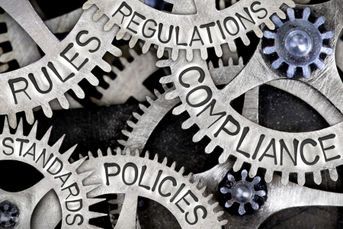Elected officials held to fiduciary standard
Just as advisers are obligated to fulfill fiduciary duties, elected officials are similarly obligated when it comes to public policy.
Investment advisers and elected officials have something important in common — both are fiduciaries. Just as financial professionals are obligated to fulfill fiduciary duties in formulating advice, elected officials are similarly obligated when it comes to making public policy. These obligations are inherent because advisers and governing officials exercise delegated authority that exposes clients and constituents to potential harm from unethical or negligent conduct.
Fiduciary responsibility in the financial services sector has been a hot topic of conversation over the past several years. The embattled Department of Labor fiduciary rule that became effective in 2016 does the same in the retirement advice arena.
(More: Fidelity, Empower and T. Rowe take three different approaches to the DOL fiduciary rule)
After more than seven years of regulatory attention being focused upon standards of conduct for investment advisers, fiduciary accountability has become a top-of-mind issue. Advisers understand that the DOL rule sets a high standard of ethics and competence. Therefore the question of whether or not fiduciary accountability will be extended to all who provide advice is an exceptionally important decision with huge ramifications, not only for investors but also for financial advisers and their firms.
Right now it is a pivotal time for the DOL rule. The Trump administration is seeking to delay the rule by 60 days to allow time to review, and potentially rescind or replace it. What took six years to put in place is slated to be reevaluated in 60 days.
While the fate of the fiduciary rule hangs in the balance, the new administration will be making decisions about how to proceed, just as the previous administration did throughout the original rule-making process.
Unfortunately, there is no codified fiduciary rule for public servants. If we are going to assess the performance of public sector fiduciaries, we have to look to fiduciary principles that are inherent in political systems and have been enumerated by legal scholars.
(More: Where Donald Trump stands on top financial adviser issues)
There is considerable academic literature about the origin and nature of fiduciary duties of public servants.
Investment advisers will find the duties of elected officials are conceptually the same as their own fiduciary obligations to clients:
Loyalty. Place the public’s best interests first. Do not allow self-interest to conflict with the public’s interest. Do not benefit at the public’s expense.
Care. Be diligent in carrying out responsibilities. Carefully consider and evaluate material facts and alternatives. Exercise prudent judgement, reach logical conclusions and take well-reasoned actions.
Impartiality. Represent all constituents fairly. Act objectively. Avoid targeting or favoring one constituency over another.
Accountability. Provide opportunities for public input and a means for the public to monitor the decision-making process.
Utmost good faith. Connect policy initiatives to serving the good of the governed. Be transparent, candid and deliberative. Engage in honest debate. Assess and monitor public preferences.
Maintain public trust in government. Serve the public good. Avoid impropriety. Exercise good stewardship of public resources. Act with civility and respect toward colleagues and constituents.
(More: Advisers’ confidence in Trump soars after president’s address to Congress)
With respect to the last of the six duties listed, “maintain public trust in government,” the most recent Pew Research Center study of Public Trust in Government offers sobering statistics. It found that at the end of 2015, “only 19% of Americans today say they can trust the government in Washington to do what is right ‘just about always’ (3%) or ‘most of the time’ (16%).” That is down from a high of about 80% achieved shortly after the end of the Kennedy administration.
Blaine F. Aikin is executive chairman of fi360 Inc.
Learn more about reprints and licensing for this article.







